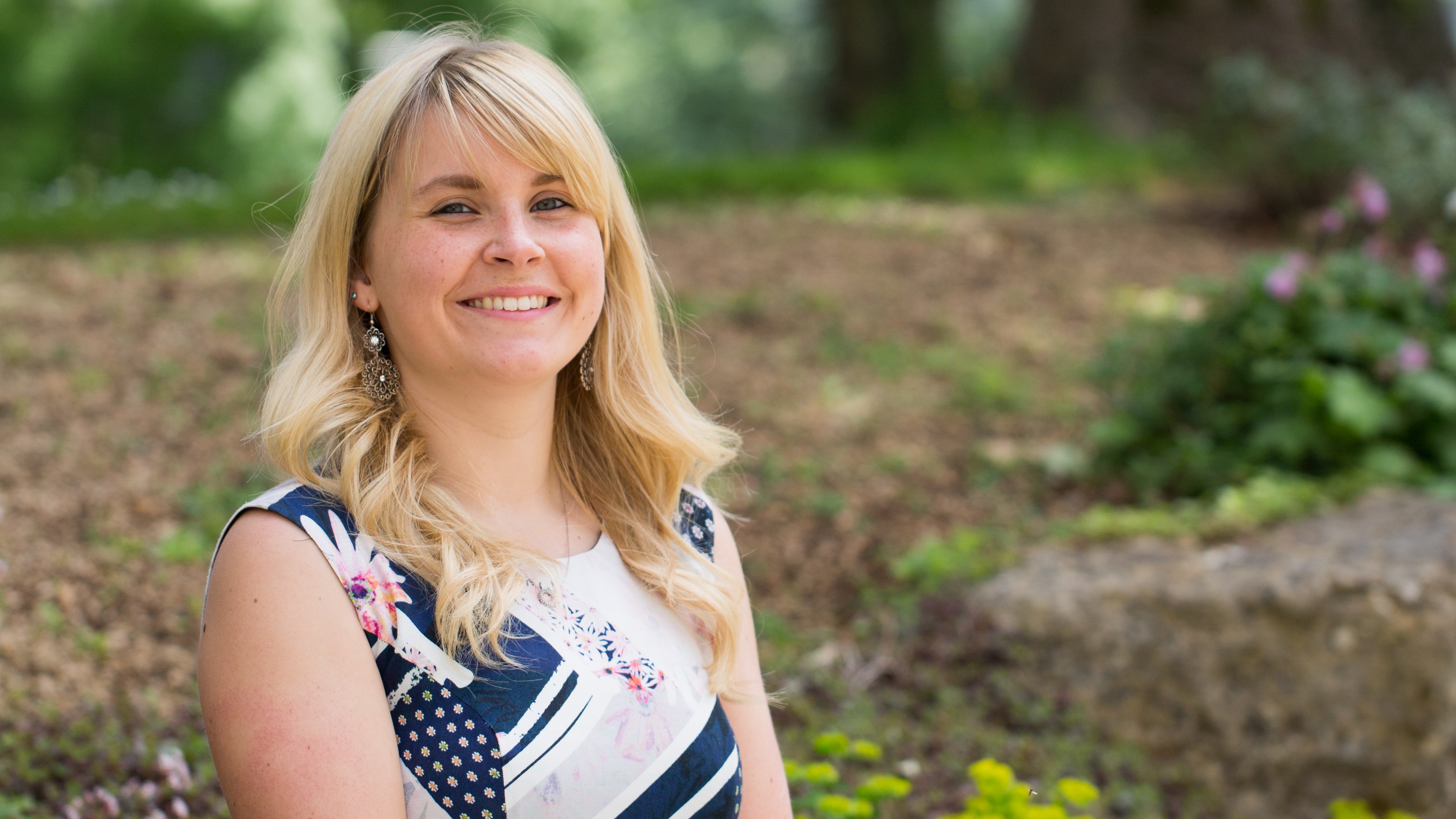Why did you apply to study MA Interpreting and Translating?
'I applied to the MA Interpreting and Translating (MAIT) because I really loved my translation units at undergraduate level. Prior to my final year, I had always said that I didn’t want to study a Master’s, but we started translation classes and they made me want to pursue it further.
'I studied my undergraduate degree at Bath, so I knew how good the quality of teaching would be and how prestigious the course is. The variety of different units really attracted me and I felt it would open so many doors.'
How would describe your experience on the course?
'I had a wonderful time! It was certainly one of the most challenging years I’ve had in education, but the whole experience was really positive. Interpreting certainly pushed my multi-tasking skills to the limit, but I can see the improvements I made and feel I’ve learnt a lot about myself in the process. Interpreting requires you to work closely with people in your group and getting to know my course mates has been a highlight.
'Furthermore, translation was just as great as it was during my undergraduate programme. It was a lot of fun and the variety of texts made it really interesting - from a scientific piece on toxic algae to a humorous article with lots of bread puns! Additionally, I really enjoyed the public speaking unit in the first semester. It was extremely helpful in improving our presentation skills not only for interpreting, but for other situations in life. Writing speeches each week became one of my favourite activities!
'I think the teaching is brilliant, both in terms of imparting knowledge and also being supportive of students. The support of my tutor and teachers made a big difference to me. I can’t recommend the course enough.'
What does a typical day look like for a MAIT student?
'The number of lectures varies each day, but I generally spent most working hours on campus. I attended lectures and practised interpreting with friends in the labs. We practised as often as possible.
'I then typically worked on other assignments, like translations or speeches. I worked hard, but it is possible to combine the course with part-time work and/or your other interests. I often played sport or attended society events in the evenings.'
What are your career plans for the future?
'I am currently doing a PhD here at Bath, looking at politics in France and the United Kingdom. Alongside my further studies, I am working as a freelance translator, mainly for two companies specialising in football translation. I want to continue practising interpreting because my dream would be to start interpreting for them too. You never know, maybe one day I will sit next to and be the voice of my favourite footballer.'
What advice would you give to language students interested in studying Interpreting and Translating?
'I would say, go for it! I am so glad I decided to apply and it was such a brilliant year. If you are accepted, the variety of components in the course means that you, like everyone else, are bound to feel outside your comfort zone at some point. When this happens, just embrace it, learn from it and make the most of the opportunity.'
